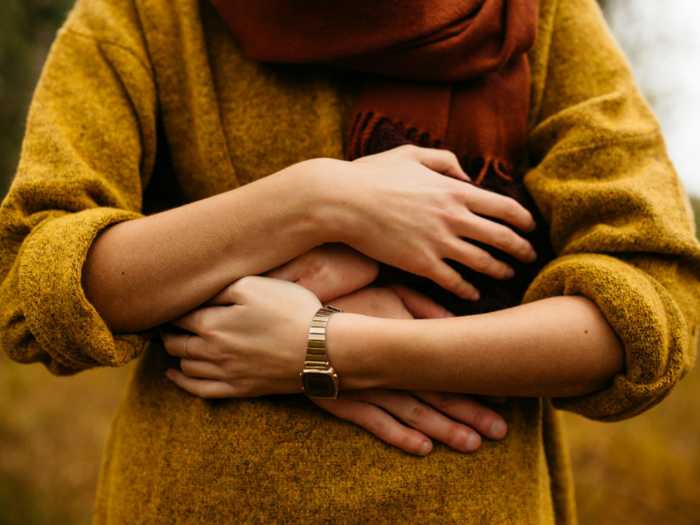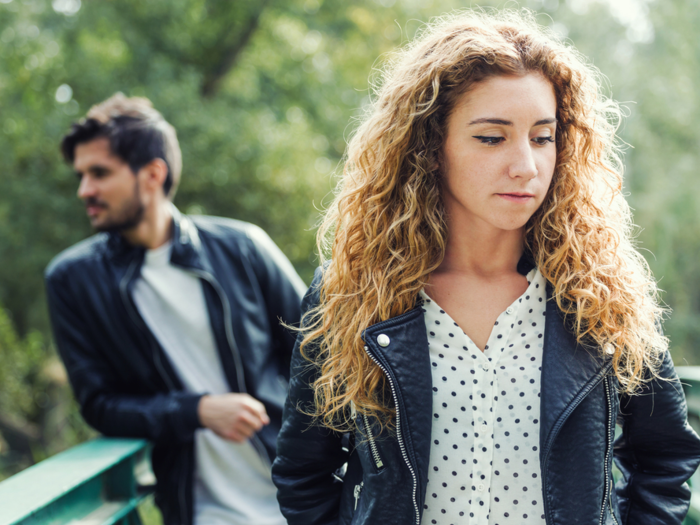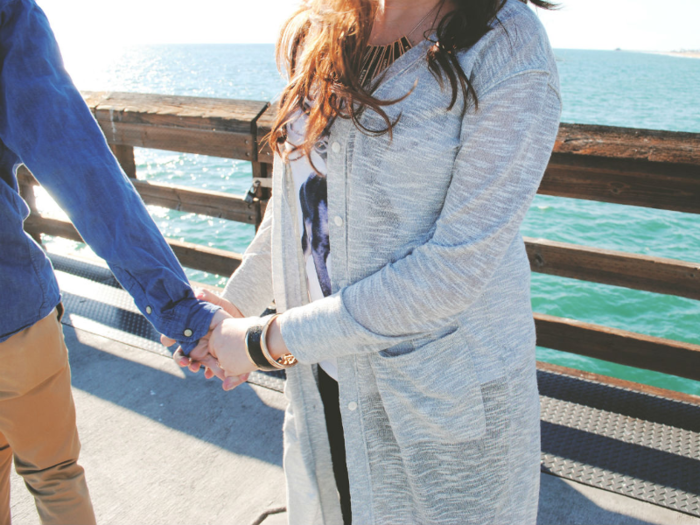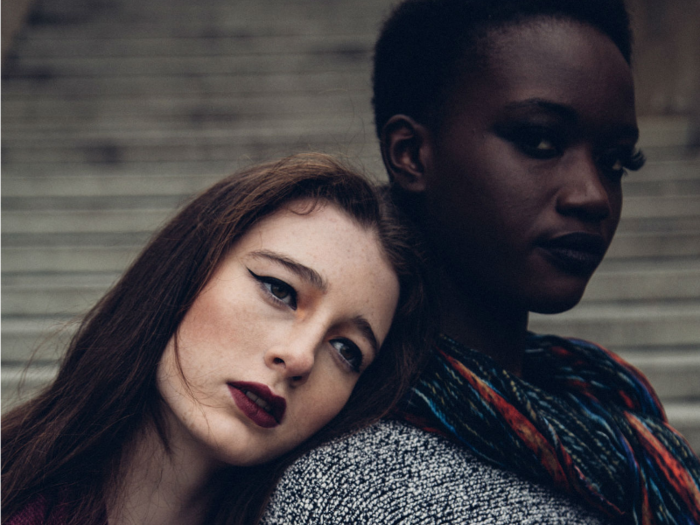8 warning signs you're in a damaging codependent relationship, according to experts
1. You start filling in the gaps

2. You want to 'fix' your partner

"It all starts out like a fairy tale, but then your new partner starts to show some signs of unhealthy behaviors. Do you find yourself making all the sacrifices to support your partner? Do you feel like you lost yourself and you need the approval of your partner to be whole? Healthy relationships are created when both partners have mutual respect, trust, and are always honest with one another. Codependent personalities tend to be people-pleasers, thriving on helping others (or even thinking they may 'fix' them). When caring for another person stops you from having your own needs met or if your self-worth is dependent on being needed, you may be heading down the codependent path."
— Tracy Malone, founder of Narcissist Abuse Support
3. You lose all your boundaries

"One way of looking at a codependent person... is she is an over-giver. She always feels overly responsible for someone or cares too much for someone. She really feels like she needs to keep giving and giving, and overcompensating. These women can be really strong, but the problem is they don't grasp the need for boundaries. Boundaries are actually really useful with people you care about, but in a codependent person's heart, 'boundaries' is a very dirty word. They think 'the moment I care about you, I drop all my boundaries. I let you disrespect me, because I believe you have a story, so I over-explain away every single thing for you.' In other words, you give more credence to their story than to yours. You have to have firm boundaries, because when you don't have them, or you're not aware of them, you fall into the codependent trap."
— Perpetua Neo, psychologist, expert in toxic relationships, and creator of Detox Your Heart
4. You don't feel like you have your own independent life

"In any relationship... it's important to both bond with your partner but also maintain your own life. You don't want to become so dependent on someone else that you lose who you are, or that essence that makes you unique. How do you maintain both sides of yourself? Schedule date nights but also nights with friends or nights alone to unwind. In the early stages of a relationship, there's something to be said for not spending every night together and giving yourselves a chance to miss each other a bit. And, when you're doing things on your own, you become a more interesting, well-rounded person, thereby a better partner to anyone."
— Erika Ettin, dating coach and founder of dating site A Little Nudge
5. You lose contact with friends or family

"I think when you start losing contact with those who are important to you, it is a sign something is not quite right. You start noticing that your primary focus is the other person, but to the point where you're really becoming quite isolated from people who were previously important. That being said, I think it's pretty normal when people fall in love, for everyone else to feel out of view… but when it goes on for a while, that's a warning sign you're becoming unmoored from the anchors in your life that keep you steady and keep you on the track which you've been on.
"I think we need to be really mindful of that because otherwise we become increasingly codependent on our partners, then if you decide they aren't good for you, you look around and there are no friends, no hobbies, and the world has become this one partner you've now decided isn't right. But now leaving that partner you're not only sacrificing the relationship, but life, because you've got nothing else"
— Jonathan Marshall, psychotherapist and executive coach
6. You need to ask for approval

"If you feel you often need to get approval or permission to do basic everyday living, or if you feel you can't make a simple decision without that person, that could be an early sign of a codependent relationship. If you enter a relationship with loads of confidence but over time, you begin to doubt yourself, your self-worth and you're less decisive, you could be in an abusive narcissistic codependent relationship. If you've been controlled by your partner or they demand being the primary decision-maker in the relationship, then when you break up, you could still believe and feel you need them.
"It may be difficult to mentally separate yourself from that way of thinking or even the regimen of the relationship but when you can heal and better self-care, you can began to focus more on your needs and being a better version of yourself."
— Catenya McHenry, journalist and author of "Married to a Narcissist"
7. Your partner has unhealthy habits

"One early sign of a codependent relationship (using the first definition of an 'enabler') is when one person repeatedly engages in an unhealthy behavior, such as consistently drinking until they pass out or binge eating until they feel sick, and the other person either joins them in it, even though he or she does not actually like to drink or binge eat, or encourages it for their own reasons.
"Example: Leah knew her boyfriend Phil was pre-diabetic and needed to stop eating sweets. But she also liked the good feelings that she got when he told her how much he liked the treats that she whipped up. Phil was conflicted about stopping and needed a partner who would help him stay focused on staying healthy. He realised that Lara was not the right person to choose to marry because she needed him to keep doing an unhealthy behaviour so that she could feel good."
— Elinor Greenberg, psychologist and author of "Borderline, Narcissistic, and Schizoid Adaptations: The Pursuit of Love, Admiration, and Safety"
8. You're always looking for reassurance

"How do you know if your relationship is codependent? Ask yourself these questions:
• Are you or your partner always worried that the other will break off the relationship?
• Do either of you need constant assurance that you are loved?
• Do you or your partner come up with little tests to get attention from the other?
• Do you or your partner act flirtatiously with people outside of the relationship to make the other jealous, or threaten to leave just so you can be begged to stay?
• Do either of you make excuses for the other's bad or disrespectful behavior, or avoid direct conversations about the state of the relationship?
• Do you or your partner define yourselves by the relationship? Do you have difficulty being alone?
• Is there a lot of tension or intensity in your relationship, and do either of you secretly enjoy the 'drama' of frequent break-ups and reunions?
"If you answered 'Yes' to even a few of these questions, you are probably in a codependent relationship."
— Holly Daniels, a doctor who specialises anxiety, codependency, and relationship addiction at Sober College
Popular Right Now
Popular Keywords
Advertisement